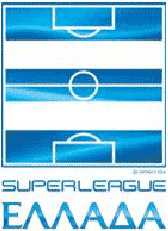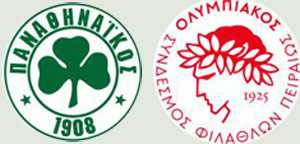Greek Football
Explore the world of soccer in Greece, some of the best Greek footballers, stadiums and clubs.
.jpg)
The history of Greek Soccer starts in 1866, when British Warship officers in the port of Corfu, wanted to play football with a team formed by locals. Although the Greeks were unfamiliar with football, they went ahead and won that very first match, which had over 3,000 spectators. Hellenic Football Federation or Greek Football Federation is the governing body for soccer in Greece. The first Greece appearance in a major tournament at the Euro 1980 in Italy.
Greek Football league system
The Greek football league system is made of 5 levels, with levels 1 to 3 clubs being elligible to play in Greek cup. Levels 4 and 5 are eligible to play in the Greek Football Amateur Cup.
- Level 1 is the highest level wh
 ich is referred to as Super League Greece, and is made of 16 clubs. This league was formed in July 2006, replacing Alpha Ethniki, which was the top Greek football league. Each team plays against each other in a home and away games. The bottom 3 clubs are relegated to Football League.
ich is referred to as Super League Greece, and is made of 16 clubs. This league was formed in July 2006, replacing Alpha Ethniki, which was the top Greek football league. Each team plays against each other in a home and away games. The bottom 3 clubs are relegated to Football League.
- Level two consists of Football League and has 18 clubs. As the top three are promoted to Super League Greece; the bottom three are relegated to either North Group Football League or South Group Football League, depending on the location.
- Level 3 is made of Football League 2 North Group and Football League 2 South Group. Each consists of 18 clubs.
- Level 4 is made of 10 mini-leagues named Delta Ethniki Group 1 to 10.
- Local championships league is categorized as level 5.
Football clubs in Greece
 Panathinaikos FC and Olympiacos FC are the most popular and successful clubs in Greek football. Olympiacos, nicknamed as The Legend is the most successful club in Greek football history in terms of trophies, with 38 League titles, 24 Greek Cups and 4 Greek Super Cups. This club was formed in March 10 1925 in the port of Piraeus. Olympiacos has never been relegated from first division. Its best performance in European computations runs all the way back in 1998-99 UEFA champions league and 1992-93 European Cup Winners' Cup, where it reached quarter finals in both occasions. Olympiacos' home ground is Karaiskakis Stadium in Piraeus. Its home jersey colors are white and red strips shirts, red shorts and red socks. When playing on away grounds, they wear all white color jersey.
Panathinaikos FC and Olympiacos FC are the most popular and successful clubs in Greek football. Olympiacos, nicknamed as The Legend is the most successful club in Greek football history in terms of trophies, with 38 League titles, 24 Greek Cups and 4 Greek Super Cups. This club was formed in March 10 1925 in the port of Piraeus. Olympiacos has never been relegated from first division. Its best performance in European computations runs all the way back in 1998-99 UEFA champions league and 1992-93 European Cup Winners' Cup, where it reached quarter finals in both occasions. Olympiacos' home ground is Karaiskakis Stadium in Piraeus. Its home jersey colors are white and red strips shirts, red shorts and red socks. When playing on away grounds, they wear all white color jersey.
Panathinaikos FC are based in the city of Athens and was founded in 1908. It has won 20 Greek Championship titles and 17 Greek Cup. In European competitions they are the most successful in Greece, having reached the European Cup finals in 1971. Panathinaikos FC also reached the semi-finals in 1985 and 1996. Its home ground is the Olympic Stadium in Athens. The club's home jersey color is green, while the away color is white.
Only six clubs have won the Greece super league since the foundation of the first official Panhellenic Championship in 1927-28 season. These teams are: Olympiacos, Panathinaikos, AEK Athens, PAOK, Aris, and Larissa.
Greece national football team
Greece national football team's history is relatively gloom, having participated twice in the final tournaments of the FIFA world cup and UEFA Euro championship in 1994 and 1980 respectively. However, during UEFA Euro 2004 this team won the finals becoming the European champions for the first time.
Greece national football team made its first major tournament appearance in 1980 during the Euro championship in Italy. It's first appearance in FIFA world cup was in 1994 in the USA, where it was eliminated in the first round by losing all games. This team also participated in the 2010 FIFA world cup in South Africa, where it finished in third position, in the first round.
Greatest Greek footballers
Greece has a number of well seasoned players. Theodoros Zagorakis is one of the greatest footballer, who was born in October 27, 1971. He was the captain of Greece national football team that won the 2004 UEFA Euro championship. He started his football career at Kavala in 1988 before he joined Panathinaikos in 1993. He later moved to Leicester City club, then to AEK Athens, Bologna and then back to P.A.O.K in 2005. Zagorakis announced his football retirement on October 5, 2006, however; his last game was on 22 August in 2007 where he played in a friendly match against Spain. Currently he is the president of P.A.O.K FC.
Thomas Mavros is a legendary Greek footballer, born on 31 May 1954. He played as a striker, and is regarded as one of the best footballers to play club football in Greece having scored a record 260 goals in 501 appearances. His soccer career started in 1970 when he joined Panionios, where he made 135 appearances scoring 35 goals. In 1976, he signed for AEK Athens and made 277 appearances, scoring 174 goals. He then moved back to Panionios in 1987. He made a total of 36 appearances with Greece national team, scoring 11 goals between 1972 to 1984. Other great footballer in Greece include: Traianos Dellas, Nikos Anastopoulos, and Giorgos Koudas.
Football stadiums in Greece
Greece has an approximate of 40 stadiums. Olympic Stadium which is a part of the Olympic Sports Complex, and it is located in Athens. It was built in 1980 to host the 1982 European championship in athletics. It was later renovated in time for the 2004 Summer Olympics. This stadium is the home ground of three major football clubs based in Athens which include: Panathinaikos, AEK Athens, and Olympiacos Piraeus. In 2007, this stadium hosted the UEFA champions league between AC Milan and Liverpool. It also hosted the 1994 finals as well as the 1987 UEFA Cup Winners' Cup final. It has a capacity of 69,618 seats.
Karaiskakis Stadium is the home ground of Olympiacos FC, and was named after Georgios Karaiskakis, a hero of the Greek war of independence. It was built in 1895 and then opened in 1986. It was renovated just in time for the football competitions of the 2004 summer Olympics. This stadium has a capacity of 33,334 seats. Other notable stadiums in Greece include: Toumba Stadium, Kaftanzoglio Stadium and Pankritio stadium.
